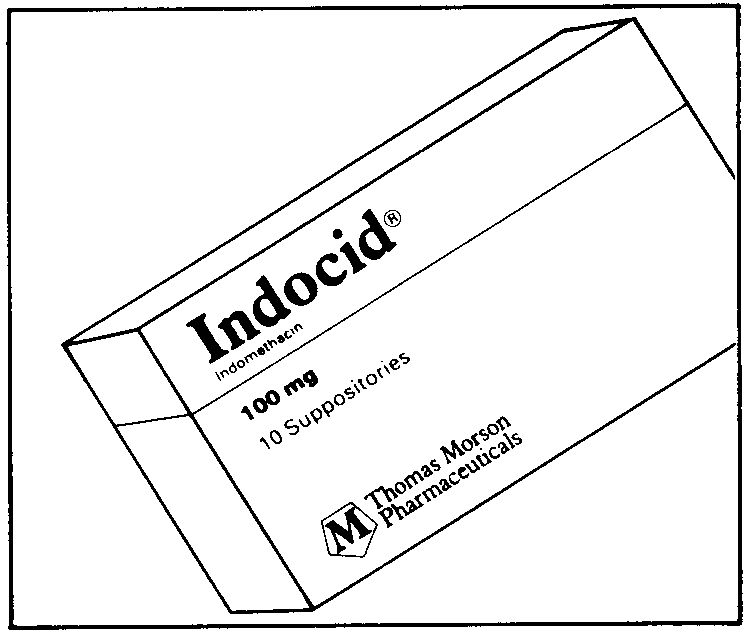
HOW SHOULD YOU USE THE SUPPOSITORIES?
The back of this leaflet gives instructions on how to use the suppositories.
KEEP USING 'INDOCID'
You should keep using the suppositories for as long as your doctor has asked even if all the symptoms have disappeared unless you develop any of the reactions to this medicine described on the back of this leaflet.
WHY DOES YOUR DOCTOR WANT YOU TO USE 'INDOCID' SUPPOSITORIES?
YOUR CONDITION
Your doctor has prescribed ‘Indocid' Suppositories for you because you have a painful condition involving inflammation of joints or muscles. There are a number of different causes - such as arthritis. Your doctor can explain which affects you.
YOUR TREATMENT
'Indocid' Suppositories contain a substance called indomethacin. This is one of a group of medicines which are called ‘non-steroidal anti-inflammatory agents' . They work by reducing the body's ability to produce inflammation.
WHEN SHOULD YOU USE THE SUPPOSITORIES?
You should use your suppositories exactly as your doctor has told you. You should begin by using one suppository at bedtime. This should provide relief from pain and stiffness for most of the following day. If you have more symptoms your doctor may ask you to use another suppository in the morning. You must not use more than you have been told.
MAKE SURE 'INDOCID' SUPPOSITORIES ARE
MEANT FOR YOU
You should feel satisfied that it is all right for you to use 'Indocid'. Some people - listed on the back of this leaflet - should not use them. Your doctor can give you more information.
CAN 'INDOCID' CAUSE PROBLEMS?
Any treatment can cause problems. Most problems with 'Indocid- are minor and are listed on the back of this leaflet. Your doctor can give you more information.
HOW SHOULD YOU STORE THE SUPPOSITORIES?
You should keep the suppositories out of the reach of children. For more advice about how to look after your suppositories sec the back of this leaflet.
THIS IS NOT THE ONLY INFORMATION WE HAVE ABOUT 'INDOCID' SUPPOSITORIES. IF YOU HAVE ANY QUESTIONS AFTER YOU HAVE READ THIS LEAFLET ASK YOUR DOCTOR OR PHARMACIST WHO WILL GIVE YOU MORE INFORMATION.
continued
